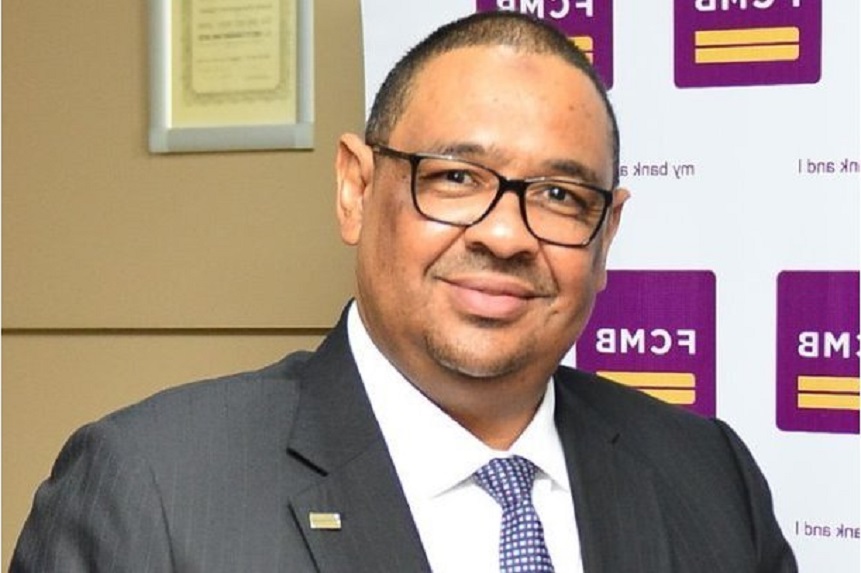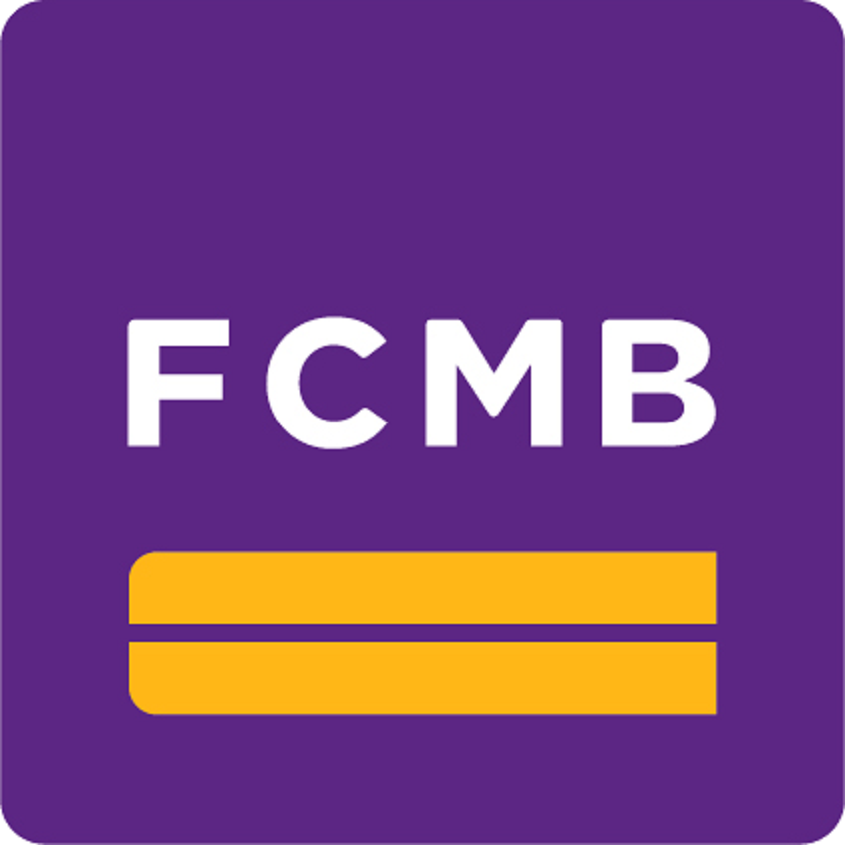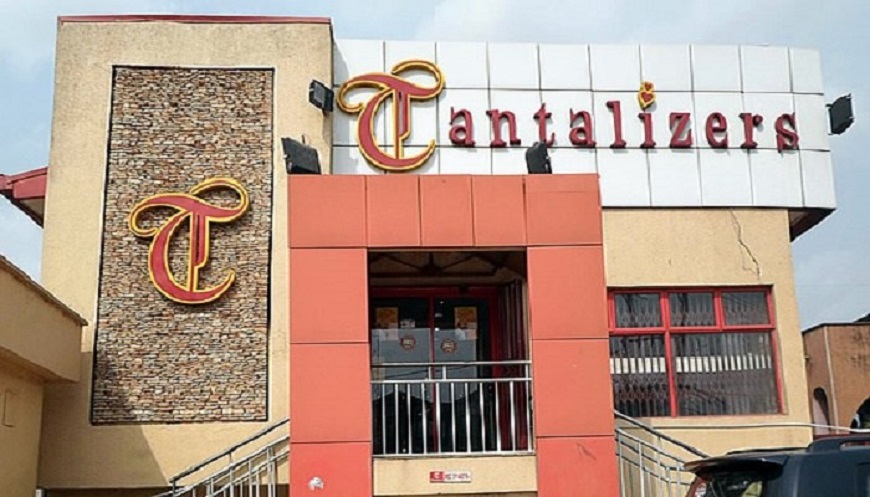Banking
How Safe Are Customer Deposits at FCMB?

By Dipo Olowookere
A bank is a financial institution that accepts deposits, which could be in form of cash or valuables, from the public with intention of keeping them safe for the owners.
However, when an institution that is supposed to be the safest place to keep valuables is riddled with stories of alleged fraudulent activities, then one must begin to wonder if the hard-earned deposits in their care are still safe.
Early this year, a report by the Nigeria Deposit Insurance Corporation (NDIC) had revealed that the number of employees of banks operating in Nigeria involved in malpractices in the financial sector increased in 2017 to 320 from 231 in 2016.
The report also documented other miscellaneous crimes such as fraudulent transfers/withdrawals, cash suppression, unauthorised credits, fraudulent conversion of cheques, diversion of customer deposits, diversion of bank charges, presentation of forged or stolen cheques, among others.
It had disclosed that the 22 licensed commercial banks and four merchant banks rendered 286 returns on dismissed/terminated staff as a result of fraud and forgeries during the year under review.
NDIC had said out of the 26,182 fraud cases reported by the 26 licensed banks, 320 cases were attributable to internal collaboration by bank staff.
The report relied on a total of 286 responses received from 26 banks during the period under review.
“The 286 responses received from banks in 2017 cited 26,182 cases of fraud and forgeries which is 56.30% higher compared to 16,751 cases reported in 2016.
“Similarly, the amount involved in the fraudulent activities documented increased by N3.33 billion from the N8.68 billion reported in 2016 to N12.01 billion in 2017 or 38%.
“However, the Expected/Actual loss slightly decreased by N24.42 million or 1.03% from N2.39 billion in 2016 to N2.37 billion in 2017,” Head of Communications and Public Affairs Unit of NDIC, Mr Mohammed Kudu Ibrahim, had said.
On fraudulent activities in the online-banking and ATM/card-related fraud-types, Mr Ibrahim said it constituted 24,266 or 92.68 percent of all the reported cases, resulting in N1.51 billion or 63.66 percent loss in the industry in 2017.
In recent times, there have been unpalatable news stories coming out from First City Monument Bank (FCMB), a mid-tier lender in Nigeria.
Recently, it was reported that eight members of staff of the bank were declared wanted by police in Lagos over the disappearance of N600 million from accounts of customers of FCMB.
The Divisional Police Office, Lion Building, Campbell Street at the Lagos Island had urged members of the public with information of the fleeing suspects to get in touch with the nearest police station or call 08033068667 and 08182465467.
The names of the bankers declared by the police were Linda Natufe Chekwube, Matthew Akpan Benny, Juwon Faromoh, Oluwasoji Ajetumobi, Ogunlaja Olasukanmi Ganiyu, Oshiojum Chibuzor Wilson, Akanaga Christian Chika and Nelson Omuzagha.
Recall that on January 19, 2018, two officials of the bank identified as Walter Ekomaye and Ebenezer Adelowo, were arraigned for allegedly making illegal withdrawal of N23 million from customers’ accounts and stealing N17.5 million from Automated Teller Machine (ATM) deposits.
In another case, a staff of FCMB known as Adejare Sonde was arraigned recently over the theft of N124 million from a depositor’s account.
Operatives of the Economic and Financial Crimes Commission (EFCC), in Ibadan Zone, arraigned the suspect before Justice A. A. Akinyemi of the State High Court sitting in Abeokuta, Ogun State, on a 12-count charge bordering on stealing, forgery and uttering.
Sonde was accused of using his position as the account officer to a micro-finance bank to steal N124 million from the customer’s account.
The petitioner explained that Sonde, as account officer of the customer, allegedly collected cash from the micro-finance bank on several occasions totalling N124 million which were not credited into the customer’s account.
Further investigations revealed that the defendant (Sonde) allegedly doctored emails which he sent to the micro-finance bank as monthly statements of account, while there was no remittance in the account.
Few weeks ago, a Federal High Court sitting in Lagos ordered FCMB and United Bank for Africa (UBA) Plc to appear before it to explain their roles in an alleged N131.2 million fraud charge.
Justice Hadiza Rabiu-Shagari gave the order during the trial of four accused persons, who were arraigned before her court by the Force Criminal Intelligence and Investigation Department (FCIID), Alagbon-Ikoyi, Lagos.
The four accused persons are: Honourable Anthony Alaka, (a.k.a General, a former member of the House of Representatives, representing Eti-Osa Federal Constituency, Saidi Oke, Bashir Mohammed: and Alhaji Umar Ali.
The four accused persons were arraigned on charges bordering on conspiracy and fraud to the tune of N131.2 million.
Also charged with the accused persons are two firms: Grantland Investment Nigeria Limited and Abroad Development Foundation.
At the resumed trial of the accused persons, the fraud victim, Austin Albert Ugochukwu, had informed the court the suspected fraudsters, carried out the alleged act through the three banks.
Consequently, the prosecutor, Dr Iman E., asked the court to summon the banks so that they can come and explain their roles in the alleged alleged fraud.
Upon the request of the prosecutor, Justice Rabiu-Shagari, summoned the banks and ordered that hearing notice should issue to them.
Narrating his ordeal before the court, the fraud victim, Ugochukwu, told the court how each of the accused persons induced him to give them the sum of N350 million in exchange for $1 million, and how they reneged only to give him $29, 900, 000.
In his evidence before the court, the victim said: “I transferred the sum of N350 million from my Bank account, to Grantland Investment Nigeria Limited, domiciled in UBA and FCMB, belonging to Alhaji Umar (fourth defendant), from my account. And since the money was paid, the fourth defendant refused to pick my calls, it was then I told my account officer to place post-no-debit order on the account, so that they would not be able to access the money.
“I was surprised, when the fourth defendant who have not being picking my calls, quickly called and said he was with the General (first accused) and was confirming the Dollars cash, and wanted to transfer the N350 million into the account of Grantland investment Limited, before General will allow him to bring the $1 million to me, but my account has been restricted, and told me to lift the restriction, so that he can come to me with the dollars”.
Ugochukwu said he refused the fourth accused person plea, but later yielded due to the intervention of one Dr. Cyraicus Anyawu, who is now at large, whom he said convinced him in Ibo language, and that he later called his account officer to lift the restriction.
He also told the court that after he lifted the restriction on his account, the second accused, Saidi Oke, only came to him with $29,199, USD, and promised to come on the next day with the balance of $870,100, but to his surprise, the second accused called and told him that he was at the Ikoyi office of the Economic and Financial Crimes Commission (EFCC), where a petition was written against him and seller of the Dollars.
Ugochukwu further told the court that while the other accused were arrested except first accused, they told him that he had been defrauded and he collapsed upon hearing that, and that when he regained his consciousness, they told him to withdraw the matter if he wanted to get his money back.
He also told the court how the men of Inspector-General of Police Monitoring Team (IGP monitoring) mounted pressure on the Area ‘J’ Command, Lagos, to transfer the matter to them in order to frustrate it, but added that the first accused, Honourable Alaka, who had been elusive while the case was in Lagos, was arrested.
These are few of the many negative stories of FCMB in the public domain, giving the financial institution a bad perception, which is might not merit.
FCMB, led by Mr Adam Nuru, prides itself as one of the most reliable financial institutions in Nigeria, but issues like these leave many to doubt this claim.
Apart of cases of fraud, which have made some depositors of the lender to continue to wonder how safe their monies are, there are reports and allegations that the bank treats its workers like slaves, a claim Business Post has not independently verified and would not want to subscribe to.
However, one key question some may have asked is what FCMB is doing to ensure its bank is not a safe haven for fraudsters in banker’s clothes.
Business Post reached out to the management of FCMB on the issues raised in this piece.
In his reaction, Head of Media Relations at FCMB, Mr Louis Ibe, said “from all indications, no customer has shown any fear about the safety of his or her deposit and there’s no inquiry from any other person either, on the rumoured allegation in the Social Media you mentioned.”
He further said the financial institution was growing stronger, “reporting a gross revenue ofN169.9 billion” in the 2017 financial year.
“Going by the audited results, the Group recorded a profit before tax (PBT) of N11.5 billion, while profit after tax (PAT) was N9.4billion. Following these, the financial institution has recommended a dividend of 10 kobo per share to be paid to shareholders.
“And in demonstration of the enhanced confidence of customers in FCMB, deposits grew to N689.9 billion as at the end of December 2017, an increase of 5 percent, from N657.6 billion in the corresponding year.
“The Group’s capital adequacy ratio also improved to 16.9 5 percent from 16.7 5 percent, just as asset base increased to N1.19 trillion, compared to N1.17 trillion at the end of 2016. Non-interest income as at the end of 2017 was N32 billion, while loans and advances stood at N649.8 billion.”
According to him, “in spite of the reduction in the headline numbers, the Group’s performance for the year 2017 witnessed an improvement in core operating performance over the previous year after adjusting for the significant foreign exchange revaluation income enjoyed in 2016.
“In line with the repositioning strategy of the Group for better performance, the key drivers of the performance include increase in income from our non-banking activities, lower impairment charges from the Bank and its subsidiaries, and improved operating efficiencies through more pervasive use of technology.”
Mr Ibe further said in his reaction that, “In November 2017, FCMB completed the acquisition of an additional 60 5 percent stake in Legacy Pension Managers Limited, which increased FCMB’s stake from 28.2 5 percent to 88.2 5 percent, thereby making Legacy a subsidiary of FCMB.
“The acquisition helps achieve further diversification of service offerings and, consequently, earnings within the FCMB Group, which will be felt from the 2018 financial year.”
“FCMB Microfinance Bank Limited, the Group’s dedicated group lending and financial inclusion vehicle, commenced operations as a state microfinance bank in January 2017.
“The business will be the key driver of FCMB’s informal and agricultural sectors (particularly small-holder farmers) drive across the country. These two sectors account for over 40% of the country’s gross domestic product (GDP),” he added.
“Following these developments, FCMB Group Plc’s operating companies are now divided along three business groups – Commercial and Retail Banking (First City Monument Bank Limited, Credit Direct Limited, FCMB (UK) Limited and FCMB Microfinance Bank Limited); Investment Banking (FCMB Capital Markets Limited and CSL Stockbrokers Limited); and Asset & Wealth Management (Legacy Pension Managers Limited, First City Asset Management Limited and CSL Trustees Limited),” Mr Ibe noted.
The bank’s spokesman disclosed that “barring any unforeseen circumstances, we see improved operating performance in 2018 based on the improving macro-economic and capital markets environment, declining cost of funds for the bank, and the growing contributions of asset and wealth management following last year’s acquisitions.”
Banking
Public Offer: Sterling Holdco Allots 13.812 billion Shares to 18,276 Shareholders

By Aduragbemi Omiyale
Sterling Financial Holdings Company Plc has allotted shares from its public offer of 2025 to investors with valid applications.
The allotment follows the earlier receipt of final approval from the Central Bank of Nigeria (CBN) and the recent clearance by the Securities and Exchange Commission (SEC).
In September 2025, the financial institution offered for sale about 12,581,000,000 ordinary shares of 50 kobo each at N7.00 per share in public offer.
However, the exercise received wide participation from the investing public, with the company getting 18,280 applications for 16,839,524,401 ordinary shares valued at approximately N117.88 billion.
Following a thorough verification process, valid applications were received from 18,276 shareholders for a total of 13,812,239,000 ordinary shares, representing a subscription level of 109.79 per cent and reflecting sustained confidence in Sterling Holdco’s strategic direction, governance, and long-term growth prospects.
The firm approached the capital market for additional funds for the recapitalisation of its two flagship subsidiaries, Sterling Bank and The Alternative Bank.
The capital injection will support the commencement of full operations and contribute to the group’s revenue diversification objectives.
In line with the guidelines set out in the offer prospectus, Sterling Holdco confirmed that all valid applications will be allotted in full. Every investor who complied with the terms of the offer will receive all the shares for which they applied.
A very small number of applications were not processed or were partially rejected due to non-compliance with the offer terms, including duplicate payments and failure to meet the minimum subscription requirement of 1,000 units or its multiples, as stipulated in the offer documents.
The group ensures a seamless post-offer process, with refunds for excess or rejected applications, along with applicable interest, to be remitted via Real Time Gross Settlement or NIBSS Electronic Funds Transfer directly to the bank accounts detailed in the application forms.
Simultaneously, the electronic allotment of shares has be credited to successful shareholders’ accounts with the Central Securities Clearing System (CSCS) on February 17, and for applicants who do not currently have CSCS accounts, their allotted shares will be temporarily held in a registrar-managed pool account pending the submission of their completed account opening documentation to Pace Registrars Limited, after which the shares will be transferred to their personal CSCS accounts.
Banking
CBN Governor Seeks Coordinated Digital Payment Reforms

By Modupe Gbadeyanka
To drive inclusive growth, strengthen financial stability, and deepen global financial integration across developing economies, there must be coordinated reforms in digital cross-border payments.
This was the submission of the Governor of the Central Bank of Nigeria (CBN), Mr Olayemi Cardoso, at the G‑24 Technical Group Meetings in Abuja on Thursday, February 19, 2026.
According to him, high remittance costs, settlement delays, fragmented systems, and heavy compliance burdens still limit the participation of households and Micro, Small and Medium Enterprises (MSMEs) in global trade.
The central banker emphasised that efficient payment systems are essential for economic inclusion, highlighting that global remittance corridors still incur average costs above 6 per cent, with settlement delays of several days, excluding millions from modern economic activity.
Mr Cardoso cautioned that while digital payments present significant opportunities, they also carry risks such as currency substitution, weakened monetary transmission, increased FX volatility, capital-flow pressures, and regulatory fragmentation.
The G-24 TGM 2026, themed Mobilising finance for sustainable, inclusive, and job-rich transformation, convened global financial stakeholders to advance the modernisation of finance in support of emerging and developing economies.
The CBN chief reaffirmed Nigeria’s commitment to working with G-24 members, the IMF, the World Bank Group, and other partners to build a more inclusive, resilient, and development-oriented global financial architecture.
“We have strengthened our AML/CFT frameworks in line with FATF guidelines, requiring strict dual-screening of cross-border transactions to mitigate risks.
“To deepen regional integration, the CBN introduced simplified KYC/AML requirements for low-value cross-border transactions to encourage broader participation in PAPSS, easing processes for Nigerian SMEs and enabling faster intra-African trade payments.
“We have also embraced fintech innovation through our Regulatory Sandbox, allowing payment-focused fintechs to test secure, instant cross-border solutions under close CBN supervision,” he disclosed.

Banking
Unity Bank, Providus Bank Merger Awaits Final Court Approval

By Modupe Gbadeyanka
The merger and business combination between Unity Bank Plc and Providus Bank Limited remains firmly on course, a statement from one of the parties disclosed.
According to Unity Bank, there is no iota of truth in reports in certain sections of the media suggesting that the merger process had stalled, as the transaction remains firmly on track.
It was disclosed that the necessary regulatory steps have been completed, but only a few other steps to finalise the transaction, especially the final court sanction.
There had been speculations that both lenders may not meet the new minimum capital requirement of the Central Bank of Nigeria (CBN) before the March 31, 2026, deadline.
However, it was noted that the combined capital base of Unity Bank and Providus Bank exceeds N200 billion, which is the minimum requirement to retain a national banking licence under the CBN’s recapitalisation framework.
When completed, the Unity-Providus merger is expected to deliver a stronger, more competitive, and customer-centric financial institution — one with the scale, innovation, and reach to redefine the retail and SME banking landscape in Nigeria.
“The merger with Providus Bank significantly enhances our capital base, operational capacity, and strategic positioning.
“We are confident that the combined institution will be better equipped to support economic growth and deliver innovative financial solutions across Nigeria,” the chief executive of Unity Bank, Mr Ebenezer Kolawole, stated.
Recall that a few months ago, shareholders authorised the merger between the two entities at Court-Ordered Meetings. They also adopted the scheme of merger at their respective Extraordinary General Meetings (EGMs) in September 2025,
The central bank also backed the merger, with a pivotal financial accommodation to support the transaction. The merger also received a further boost with a “no objection” nod from the Securities and Exchange Commission (SEC).
The regulatory approvals form part of broader efforts to strengthen the resilience of Nigeria’s banking system, reinforce capital adequacy across the sector, and mitigate potential systemic risks.
The development positions the combined entity among the 21 banks that have satisfied the apex bank’s new capital threshold for national banking operations.
-

 Feature/OPED6 years ago
Feature/OPED6 years agoDavos was Different this year
-
Travel/Tourism10 years ago
Lagos Seals Western Lodge Hotel In Ikorodu
-

 Showbiz3 years ago
Showbiz3 years agoEstranged Lover Releases Videos of Empress Njamah Bathing
-

 Banking8 years ago
Banking8 years agoSort Codes of GTBank Branches in Nigeria
-

 Economy3 years ago
Economy3 years agoSubsidy Removal: CNG at N130 Per Litre Cheaper Than Petrol—IPMAN
-

 Banking3 years ago
Banking3 years agoSort Codes of UBA Branches in Nigeria
-

 Banking3 years ago
Banking3 years agoFirst Bank Announces Planned Downtime
-

 Sports3 years ago
Sports3 years agoHighest Paid Nigerian Footballer – How Much Do Nigerian Footballers Earn

















